Search
Remove Ads
Advertisement
Search Results

Video
Visiting the Ise Grand Shrine
The Ise Grand Shrine is a Shinto shrine complex that is made up of multiple shrines in two main locations. According to legend, it was founded circa 2000 years ago, and the buildings are rebuilt every twenty years for preservation.
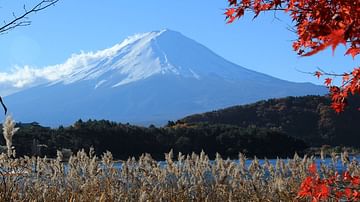
Image
Mount Fuji, Honshu
Mount Fuji (Fujisan), Honshu, Japan. The mountain is 3,776 metres high and a sacred site for followers of Shinto and some sects of Buddhism.

Image
Agata Shrine in Uji, Japan
The Agata were tribal units under the reign of the Yamato court (c. 300-650 CE), which held sway over western Japan. Particularly in the Nara and Kyoto areas, the agata played important political and ceremonial roles. The name of the Agata...
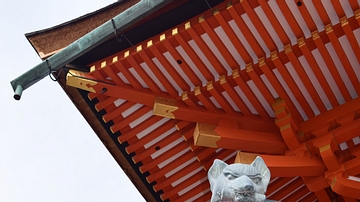
Image
Fox Statue at Fushimi Inari Shrine
The Fushimi Inari Shrine near Kyoto (Heiankyo), Japan is the largest and most important shrine dedicated to Inari, the Shinto god of rice and prosperity. It is famous for the large number of red gates (torii) at the site. The shrine was founded...
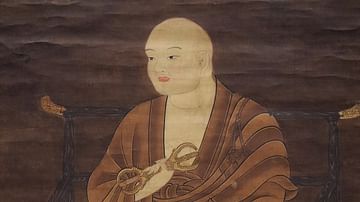
Definition
Kukai - Japan's Founder of Shingon Buddhism
Kukai or Kobo Daishi (774-835 CE) was a scholar, poet, and monk who founded Shingon Buddhism in Japan. The monk became the country's most important Buddhist saint and has been credited with all manner of minor miracles. Noted as a gifted...
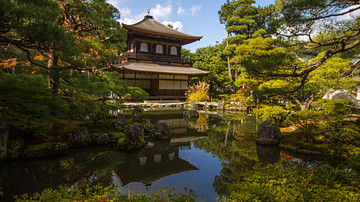
Definition
Ginkakuji
The Ginkakuji Temple in Kyoto, Japan, formally referred to as Jisho-ji and otherwise known as 'The Serene Temple of the Silver Pavilion', was first built in the 15th century CE. It is a Rinzai Zen temple with the complex consisting of the...
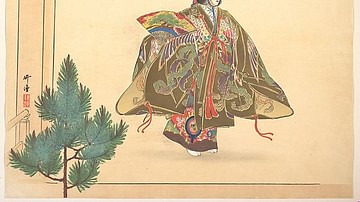
Article
Daily Life in Medieval Japan
Daily life in medieval Japan (1185-1606 CE) was, for most people, the age-old struggle to put food on the table, build a family, stay healthy, and try to enjoy the finer things in life whenever possible. The upper classes had better and more...

Image
Ryogoku Sumo Hall, Tokyo
The Ryogoku Sumo Hall, Tokyo.
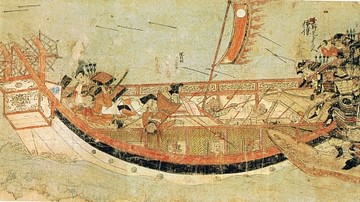
Article
The Mongol Invasions of Japan, 1274 & 1281 CE
The Mongol invasions of Japan took place in 1274 and 1281 CE when Kublai Khan (r. 1260-1294 CE) sent two huge fleets from Korea and China. In both cases, the Japanese, and especially the samurai warriors, vigorously defended their shores...
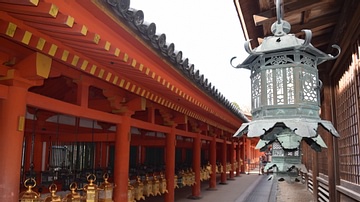
Image
Kasuga Taisha Shrine, Nara
Votive lanterns at the Kasuga Taisha Shinto shrine, Nara, Japan. Founded in 768 CE (or 710 CE) during the Nara period.